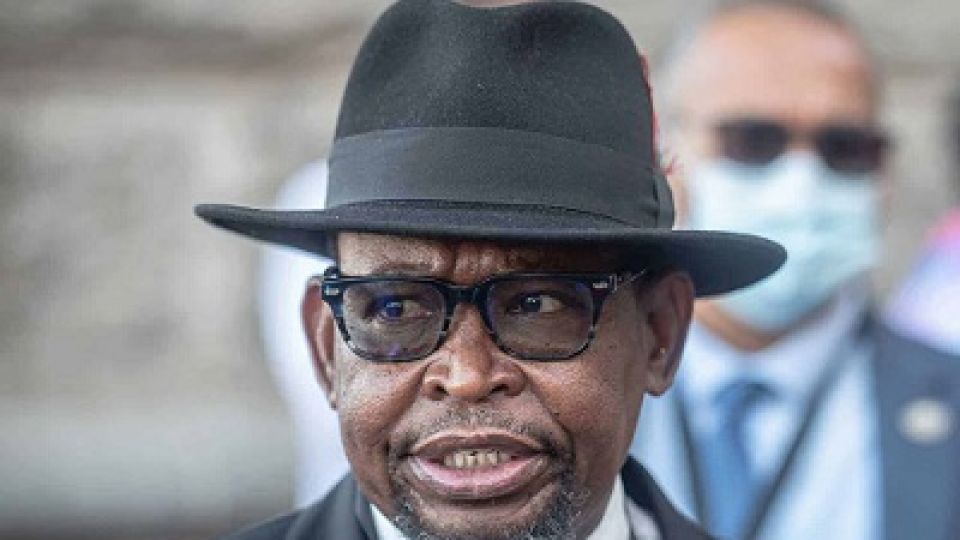by TINTSWALO BALOYI
JOHANNESBURG, (CAJ News) – WITH 2024 being an election year in South Africa, it is projected the 2024 Budget Speech will seek to satisfy as many of the broad interests of the social, commercial, public and private spheres as possible.
Finance Minister, Enoch Godongwana, will present the speech to Parliament on Wednesday.
The minister will outline South Africa’s economic, financial and social priorities in terms of government expenditure over the next year.
Harry Scherzer, Chief Executive Officer of Future Forex, said Godongwana faced a daunting task as the government grapples with a mounting debt crisis that is squeezing taxpayers and stifling investor confidence.
“With the budget deficit at an all-time high, Godongwana’s options are stark: borrow more, raise taxes, or cut expenditures,” he said.
Scherzer said borrowing more would only exacerbate the debt crisis while raising taxes could further burden already struggling taxpayers.
“Cutting expenditure is necessary but politically challenging, especially in an election year,” he noted.
The executive added the government revenue strains stem from ongoing infrastructure challenges, notably at Eskom, ports, and rail systems, compounded by global commodity price declines, dimming prospects for near-term budgetary improvements.
Potential interest rate cuts and reduced inflation hinge on augmenting renewable energy capacity, easing port and rail congestion, and curbing wasteful spending.
“While we hope for anchored government debt levels, we believe election year dynamics may dampen such prospects, warranting close monitoring of policy shifts,” Scherzer said.
The tourism and hospitality sector is expectant, looking to the budget speech for announcements which positively impact the already growing travel numbers in South Africa.
“Not only is the tourism industry’s contribution to the economy significant, it is also an industry that can grow relatively easily, given the appropriate resources in terms of government budget and political will,” commented Anton Gillis, CEO of Kruger Gate Hotel.
In this year’s budget speech, the sector looks forward to a commitment to growing the industry by allocating sufficient budget to bodies, organisations and initiatives that promote growth.
Tourism is hailed for its potential to address unemployment, which locally sits at 32 percent.
“In addition to financial support and resources, the tourism sector needs and deserves leadership at the highest level that understands the importance of prioritising complex issues hampering growth, including visas, loadshedding, as well as crime and tourist safety,” Gillis added.
Clinton Thom, General Manager at Radisson Blu Hotel Waterfront, believes the dawn of 2024 brings with it a palpable sense of optimism in South Africa’s tourism and hospitality industry.
“Building on the momentum gained in 2023, the sector is set to experience a transformative year,” he said.
Radisson Blu Hotel Waterfront has witnessed a significant increase in reservations from the United Kingdom and United States, largely attributed to the new direct flight routes from Cape Town to America.
Bradd Bendall, Interim CEO of BetterBond believes homeowners will be hoping the National Budget includes an extension of the government’s incentive programme to help households finance solar installations, given ongoing disruptions to power supply and rising electricity costs.
The incentive is due to end this month. Amid many households facing economic headwinds over the past year an extension of the incentive could create some breathing room for cash-strapped consumers.
“We will listen with keen interest to the National Budget to hear about plans for growing the economy and bolstering the employment gains that we have seen over the past year,” Bendall said.
The upcoming budget announcement is based on parameters set in 2021 within the Country Partnership Framework agreement between the Treasury and the World Bank Group.
“The budget is expected to adhere to these predefined parameters, even in an election year, without veering towards a populist approach,” said Ahmed Jooma, Tax Consultant at CMS South Africa.
Jooma noted the budget faced the immediate task of bridging a R15 billion revenue gap, likely through adjustments in tax policies such as bracket creep and sin taxes, particularly on alcohol.
However, major changes to VAT or the fuel levy are not anticipated due to their broad economic implications.
“Regardless of the budget outcomes or post-election developments, South Africa’s deep-rooted economic issues, exacerbated by significant income and wealth disparities, highlight the need for a social compact to prevent a potential crisis,” Jooma said.
– CAJ News

